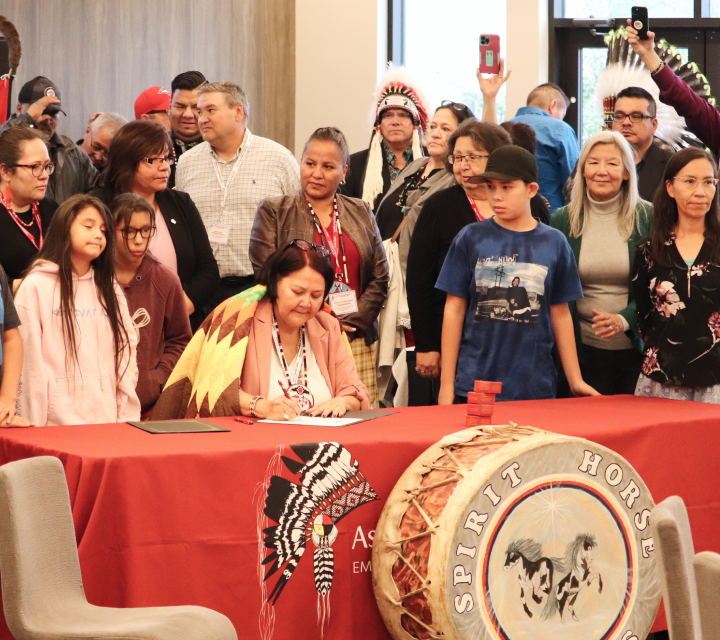We all have a sacred responsibility to take care of and make an alliance with Mother Earth.
Press Releases

AMC Shares First Nations Priorities Ahead of 2025 Federal…
Treaty One Territory, Winnipeg – With the upcoming federal election set for April 28, 2025, the Assembly of Manitoba Chiefs (AMC) is calling on all party leaders and candidates to…
About Us
The Assembly of Manitoba Chiefs was created in 1988 by First Nations in Manitoba to coordinate political action and technical work on common issues. It is a product of political and social developments that have been underway for decades.
Faced with the domination and assimilation policies of Canada’s Department of Indian Affairs, First Nations have long recognized their common interests and the strength to be found in solidarity.

We represent and advocate for 63 First Nations across Manitoba.
Click on the map for a detailed view showing the details of our member nations!
Fisher River Cree Nation
Chief David Crate
More Info













